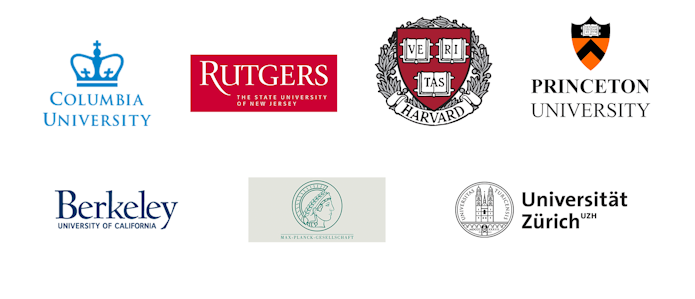SMAUG is a five-year project to improve our understanding of baryonic processes in galaxy formation to sufficient accuracy that we can greatly reduce the associated uncertainties now present in astrophysical measurements of neutrino masses, the fundamental nature of dark matter, and the evolution of dark energy. All existing simulations of galaxy formation in a cosmological framework adopt, to one degree or another, phenomenological “sub-grid” recipes to treat physical processes that occur below the spatial resolution that is explicitly simulated. Often, these sub-grid recipes are parameterized, and the parameters are tuned to reproduce observations of global galaxy properties, leading to questionable predictive power. The SMAUG consortium is developing a set of carefully designed numerical experiments to drill down and explore the key physical processes involved in galaxy formation, including:

- the multiphase structure of the interstellar medium
- the efficiency of star formation in dense molecular clouds
- large-scale galactic outflows driven by stellar feedback
- the formation of the first seed black holes
- feeding and growth of supermassive black holes
- feedback from accreting black holes
- the physics of the circumgalactic medium
We are utilizing a nested set of simulations that spans scales from individual stars, supernovae, and black holes, up through global galaxy scales, to cosmological scales. The eventual goal is to develop a ladder of sub-grid prescriptions that reproduces the coarse-grained properties arising from higher resolution simulations. An additional goal is to develop novel, computationally efficient approaches for implementing this coarse graining in cosmological galaxy formation simulations. By creating a direct link between ab initio physical processes and observables used as cosmological probes (such as weak gravitational lensing, galaxy clustering, and CMB secondary anisotropies), SMAUG aims to maximize the science returns of next generation cosmological experiments (e.g., Simons Observatory, WFIRST, Euclid, LSST). SMAUG is based at the Center for Computational Astrophysics at the Flatiron Institute, with members from a broad network of institutions in the US and Europe. SMAUG gratefully acknowledges support from the Simons Foundation.
SMAUG is based at the Center for Computational Astrophysics at the Flatiron Institute, with members from a broad network of institutions in the US and Europe.

PEOPLE
Directors: Greg Bryan, Rachel Somerville
Planning Committee: Lars Hernquist, Eve Ostriker, Eliot Quataert, David Spergel, Volker Springel, Jim Stone, Romain Teyssier
Team members:
Lauren Anderson (CCA)
Daniel Angles-Alcazar (CCA)
Nicholas Battaglia (Cornell)
Pawel Biernacki (IoA, Cambridge)
Greg Bryan (CCA/Columbia)
Blakesley Burkhart (CCA/Rutgers)
Matteo Cantiello (CCA)
Ena Choi (Columbia)
Daniel Defelippis (Columbia)
Andrew Emerick (Columbia)
Drummond Fielding (CCA)
Shy Genel (CCA)
Melanie Habouzit (CCA)
Chris Hayward (CCA)
Lars Hernquist (CfA, Harvard)
Chia-Yu Hu (CCA)
Rahul Kannan (CfA, Harvard)
Chang-goo Kim (CCA/Princeton)
Michael Kretschmer (University of Zurich)
Miao Li (CCA)
Yuan Li (CCA/Berkeley)
Federico Marinacci (CfA, Harvard)
Philip Mocz (Princeton)
Bhawna Motwani (Columbia/CCA)
Eve Ostriker (Princeton)
Viraj Pandya (UCSC)
Roxana Pop (Harvard)
Eliot Quataert (UC Berkeley)
Evan Schneider (Princeton)
Matthew Smith (CCA/CfA)
Rachel Somerville (CCA/Rutgers)
David Spergel (CCA/Princeton)
Volker Springel (MPA)
Tjitske Starkenburg (CCA)
Jim Stone (Princeton)
Romain Teyssier (University of Zurich)
Stephanie Tonnesen (CCA)
Francisco Villaescusa (CCA)
Eli Visbal (CCA)
Rainer Weinberger (CfA/Harvard)
Senior Affiliates:
Romeel Dave’ (University of Edinburgh)
Avishai Dekel (Hebrew University)
Phil Hopkins (Caltech)
Jerry Ostriker (Columbia/CCA)
